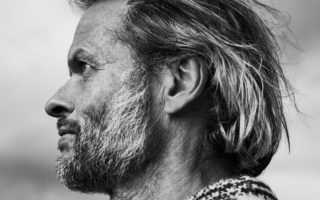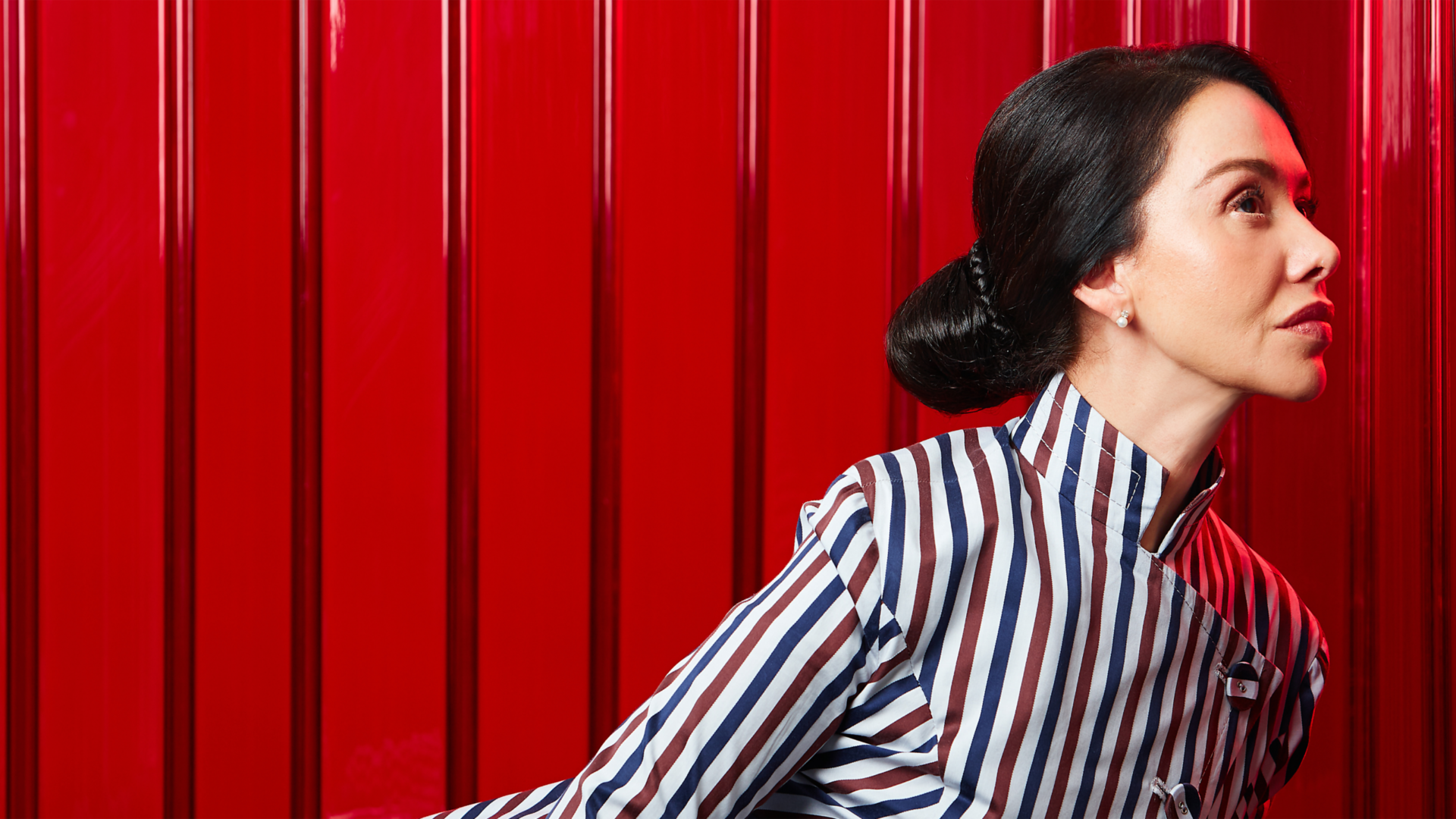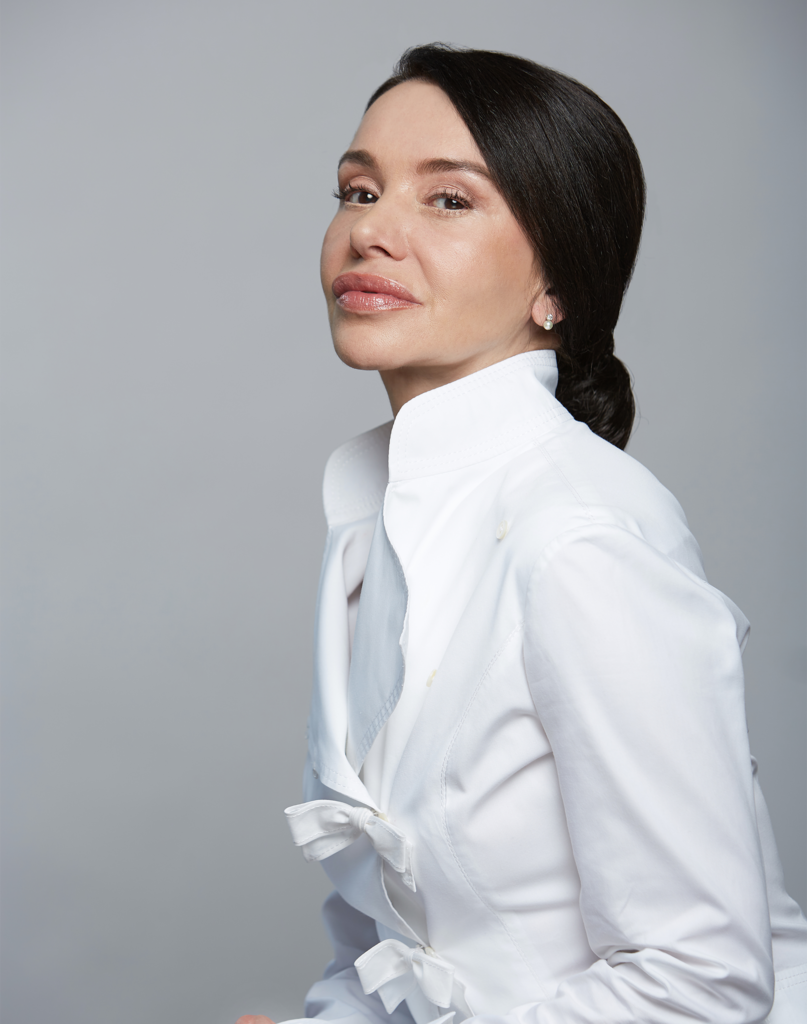
in Adventure
Erling Kagge
"Life is all about noise, but silence is more important today than it has ever been."

in Adventure
"Life is all about noise, but silence is more important today than it has ever been."

Chef and entrepreneur Martha Ortiz is a female chef best known for her uninhibited approach to Mexican cuisine. For a chef whose inventive flavours and love of design often pays homage to the classic artistic traditions of Mexico, Ortiz offers an honest look into the personal journey of one of Mexico’s leading restauranteurs.


Taste can be alot more than a dish. We can taste life.
Martha Ortiz
Martha Ortiz: I think is Mexican food is feminine in a way. From the beginning we have had a beautiful sensuality. My mother is also an artist, so I have always received a point of view on beauty that has come from women. Since I was a little girl, I adored looking at all the beautiful great artists, the surrealists that lived in Mexico. I think they look at life as having a magical, strong, profound beauty. I also have the influence of Mexican writers from the fifties because you know, my mother was an artist and she was influenced by them.
MO: I have been very blessed in my childhood because I have met some great people. I remember when I was a little girl, I met this man with these very transparent eyes. He had a way of looking things with a high sensibility; he was Octavio Paz, our Nobel Prize winning poet. So I read Sunstone– a poem that I think is one of the best poems of the 20th century. He was a man with a Mexican point of view that he could communicate with words. So I decided that I could tell stories and create narratives, through flavours, through food and through colours. So in Dulce Patria, my restaurant in Mexico, I create small stories that I adore.
MO: Being Mexican for me, is being part of a very strong heritage that brings together the influences of both the Old and the New World. We also have our Spanish heritage. So it’s bringing these two worlds together- the old and the new, and all of its possibilities. And at the same time, I think Mexico is very blessed because we have these ancient cultures like the Mayan and Aztec that adored beauty.
I saw an exhibition on Mayan aesthetics last year, and I was amazed with all the colours that they used. They painted using achote, and we eat achote. So when I finished that exhibition, I remember that I came to my kitchen and I said, “ I hope that the Mexican goddess will help me to paint this plate like these people”, and we painted everything with achote, this beautiful colour that can stay forever.
MO: I think it’s the story. You know what I do here, I always go to the Victoria and Albert Museum and all the other museums. I can be there for hours, you know, looking at the small portraits, at the jewellery and wondering, “what’s the story of this person?”. I can be there for hours, looking at these amazing faces and expressions.
MO: Taste can be alot more than a dish. We can taste life. When I was a little girl, and this is very Freudian in a way, my parents had all these big and small dinners where they put all these people together. I used to think it was fantastic because they were eating with intelligence, with different points of views, and I think I’m recreating these moments through flavours. It’s like the theatre of my childhood recreated in this more mature point of my life.
MO: You must taste tradition, and at the same time taste modernity. You have to be aware of your social environment and you have to be aware of equality. That’s very important for me in Mexico. I take the time to see who’s a woman producer and I buy from her. I embrace and empower them because I’m a woman and I have to make this business about equality. My chefs in Mexico are women and I’m so happy about that because you need to mentor and empower other women. I once met the former Secretary of Health of the United States that used to work wit Hillary Clinton, and she said something that stuck in my mind. She said, “it is easier to succeed when you have a woman mentor”. And I think that being a woman, my responsibility is to create equal opportunities.
MO: Well I can tell you that at the beginning it was very hard. Even when I studied political science, it was very hard. We were the only women and it was hard- even in a country like Mexico. But I decided in that moment that intelligence and reflection had to rule my life. I didn’t want to analyse like a man. I wanted to think like a woman- with both sense and sensibility as Jane Austen once said. I learned from my mother from the beginning, that it’s not an easy world. I think it is changing, but it’s not enough. There are prizes for the Best Female Doctor, why not the Best Doctor you know?
You made it once, you can make it twice.
Martha Oritz
MO: I have had to pay a large price. You know, even when you want to make an economic trade with someone, being a woman, they don’t take it the same way. We don’t have the same rights. We are women, we are professionals but we’re not paid the same as men. When I had a restaurant in Mexico 15 years ago, the government shut it down because they told me that I needed one more parking space. If I was a man, I’m sure I would not have been treated like that. It was the most successful restaurant, but I was very young and I was naive and the system made me pay the price.
MO: A woman has to cook her own life, and then to cook in a restaurant. We have to empower ourselves in a good way and believe in ourselves. It is so easy for a man to say, “you are not good enough. You’re not going to be paid enough,” and we believe that in a way because it has been centuries of education. Centuries. Being a woman, if you decide to not have children, or not to get married, and instead chase a bright career, you can make your own decisions. You’re free to make it.
MO: Passion is the most important ingredient in my life. What I have learned with my small history, is that being a brave woman 15 years ago, it was tough, and I paid the price. I have a woman friend that came to my home one afternoon. She’s the most influential political writer in Mexico and I remember I was crying so much. I was just crying and crying, and she asked, “what are you crying for?”, and I said “ I have lost everything”. She told me, “you haven’t lost anything. You have it in your heart. Do it again. It is easy”. It was the best advice. You made it once, you can make it twice. And I remade myself.
MO: I want to tell the story of what happened, because I think I need to share it with other women. I want to share a positive way of looking at things, and to work on a book interviewing women about the recipe of their lives.
Martha Ortiz is a Mexican chef and owner of the restaurants Dulce Patria in the Las Alcobas hotel in Mexico City and Ella Canta within the InterContinental London Park Lane in London, England. Dulce Patria has since won several awards and as of 2017, is ranked number 48 in the list of Latin America’s 50 Best Restaurants.